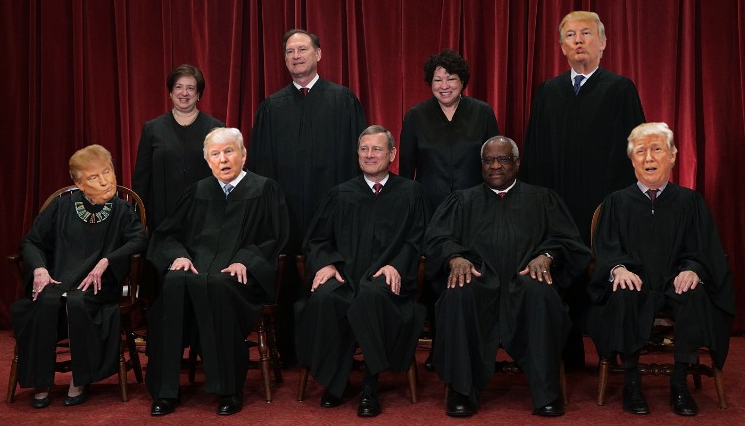Dukasaur wrote:thegreekdog wrote:mrswdk wrote:I didn't say anything about Kavanaugh specifically. I said the American judiciary in general. The US has at least some partial judges who are nominated, by politicians, precisely because the politicians nominating them are aware that those judges are partial and favor those politicians' political leanings.
Looking at your claim that some judges are 'activists' who ignore precedent (even though the US has a case law system) and are picked by America's politicians precisely because they behave in this way, I was correct in saying what I did and you agree with me.
Kavanaugh may well be completely impartial as an individual, but the US justice system as a whole isn't and that is why people are able to gain traction when throwing shade at Kavanaugh's impartiality.
I suppose the alternative is that the ruling party removes all opposition party judges, imprisons and/or executes them, and replaces them with ruling party loyal judges. That seems like a process that work for you mrs.
Or, you could, you know, try to have a process that's about selecting competent practitioners of jurisprudence rather than standard-bearers for political parties.
https://www.bbc.com/news/world-us-canada-45632035In the UK, the 12-member Supreme Court was created in 2009, replacing the Law Lords in Parliament, bringing the UK into line with many comparable modern states. It acts as a final court of appeal in cases of major public importance.
The justices are nominated by an independent commission, chaired by the president of the court, a senior judge from anywhere in the UK to be named by the president and members of the appointment commissions from England and Wales, Scotland and Northern Irelan
(...)
These rules, experts say, mean that political positions of nominees are often unknown or irrelevant in the process.
(...)
"We have a completely independent process... It's almost seen like an internal promotion system rather than a politicised process," she added, saying that citizens can officially complain over alleged political bias.
On further review, this is a classic British "independent" commission.
A voting majority (3 of 5) of its members are selected from the judicial appointments commission. But who chooses the judicial appointments commission? If you look at their website, etc., it is exceptionally vague just to say they are chosen "through a competitive process" (
https://www.judiciary.uk/related-office ... ommission/). Once you actually dig into the statute (
http://www.legislation.gov.uk/uksi/2013 ... tents/made) you find they are appointed by the Lord Chancellor. And, of course, the Lord Chancellor is designated by the Prime Minister.
In other words, for all intents and purposes, the Prime Minister appoints judges without anyone's input at all, his choices are just laundered through a series of intermediary officials and panels - like criminals launder money - to wash and clean them and make them appear independent. The US system of checks and balances is superior.
SUCK IT MRSWDK










































































































